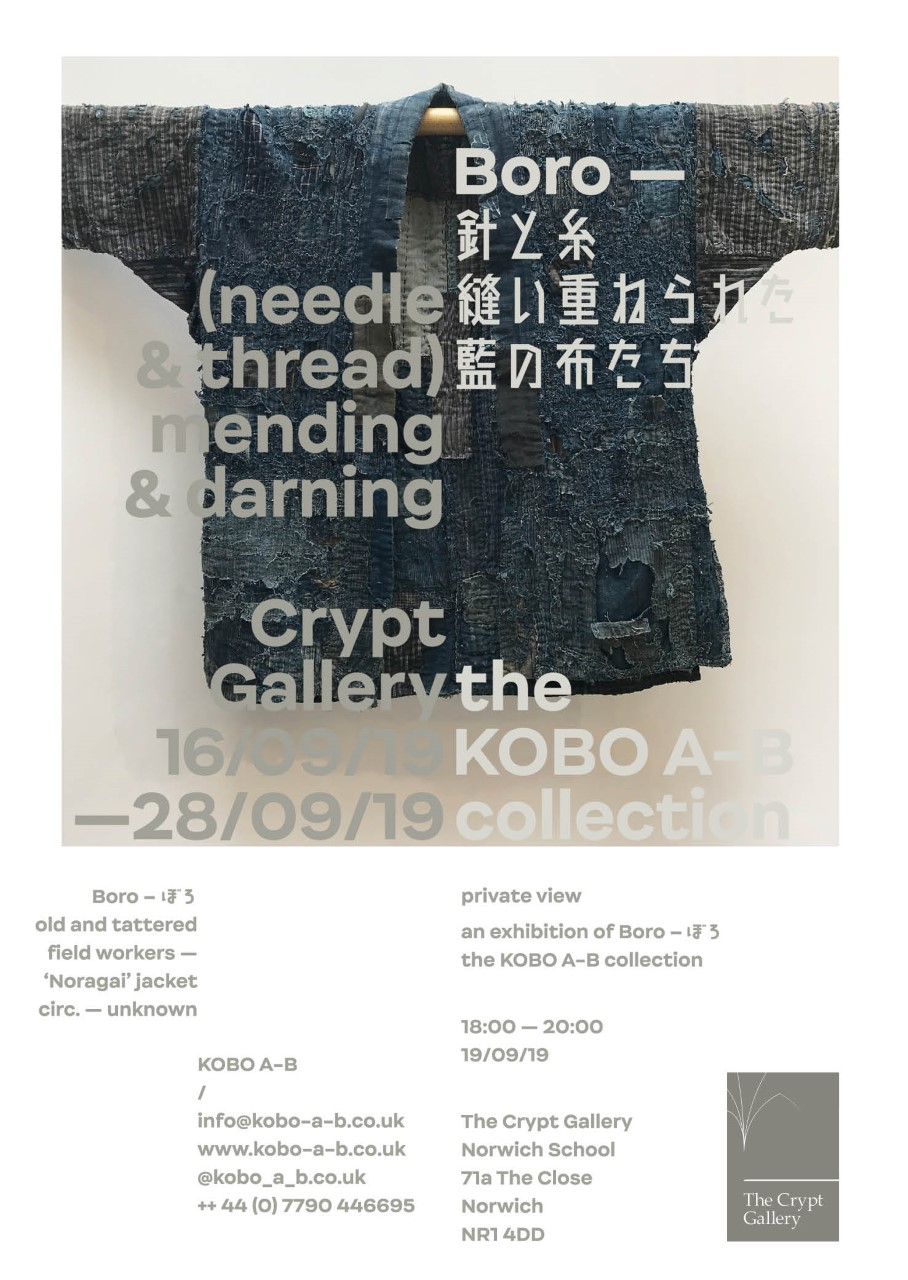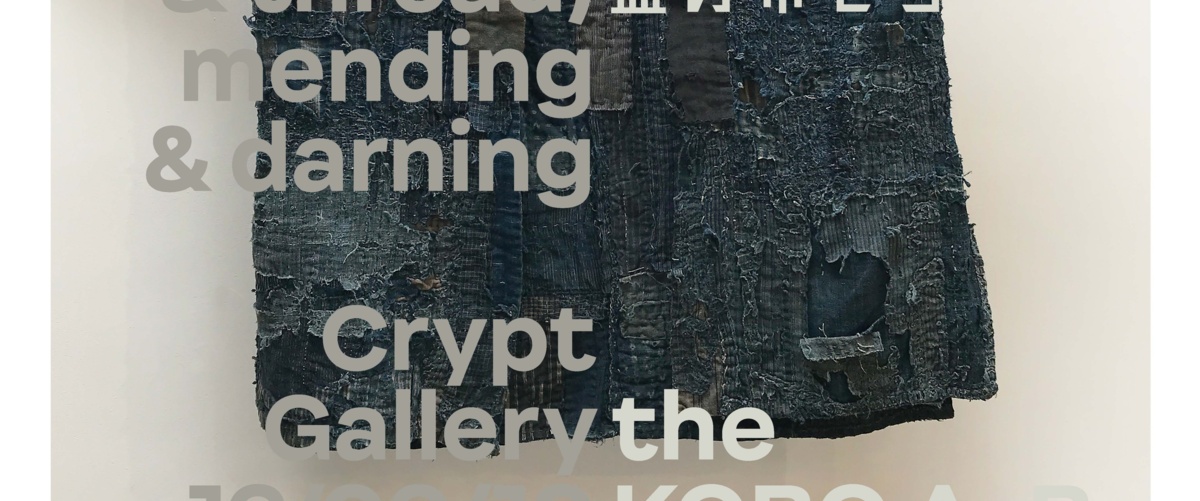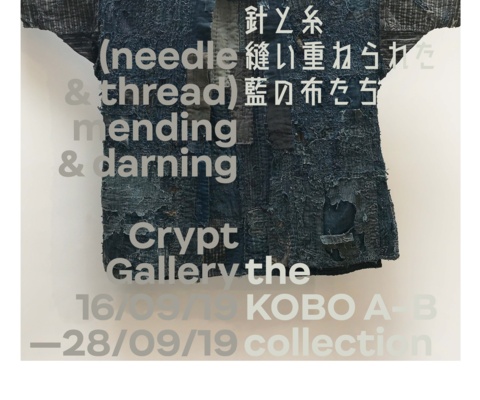'Boro' the KOBO A-B collection is the first exhibition of the school year being held in the Crypt Gallery at Norwich School. KOBO A-B is a local Japanese Boro, textiles and fabrics, ceramics, homeware, stationery, clothing and furniture shop owned by Hiroko and Nigel Aono-Billson.
The exhibition brings together elements of Hiroko and Nigel's eclectic private collection of Japanese Boro textiles, pieces which date back 100 to 200 years in the Edo period. 'The nature of Boro is about mending, recycling and repurposing.'
Tessa and Lily, Art and Design Graduate Assistants at Norwich School, interviewed Hiroko and Nigel on what the exhibition entails.
As well as your brick and mortar shop on 21 Magdalen Street, what else is KOBO A-B?
The concept for KOBO A—B started around 2005 when we lived in Japan, it sprang from Hiroko’s mother’s collection of different types of Japanese old textiles mainly Indigo and Ikat. 10 years ago, we started doing a pop up in the farmers market and I was interested in making Boro inspired pieces. At the time, we were looking at the fusion between East and West culture in magazines, we started to write a proposal for a book and the shop has become a reincarnation of that.
Nigel: As well as my graphic practice I’ve always been interested in craft and working with my hands, so I started making scarves and bags which were all inspired by these Boro articles and items.
We were approached last year about this collection and as we already had several pieces anyway, the main core of our collection are those pieces which date back from 100 to 200 years in the Edo period. One of the concepts behind KOBO A—B is to introduce the craft to the UK and particularly to this region.
In Norwich, there seems to be a hub of Japanese culture, with the Sainsbury Institute for the Study of Japanese Arts and Cultures and the UEA having Japanese language and historical courses, so I guess Kobo fitted in nicely and continues to evolve organically.
How does KOBO A—B follow the ethos ‘everything considered’?
Everything considered comes from the Japanese word ‘Teineini’, which is about what you do: everything with care, so everything is thought about. We try to be ethical, caring and thoughtful.
The nature of Boro is about mending, recycling and repurposing. There isn’t a huge history about it, a lot of it is about necessity. I suppose there’s a sense of reverence; about everything, even the Boro garments become slightly reverential because they are spiritual. They’re imbued with the stories of people that made them; with these garments, we don’t know how many people wore them, how many people worked on them, or how many generations worked on them. They have been passed down in families.
Every single thing within KOBO A—B is chosen with consideration of where they came from, how it is made and what it is also made of.
You’re showing a collection of historical and contemporary Japanese Boro textiles in The Crypt gallery 16th Sept- 28th Sept, how do you intend these pieces to work within this space?
What’s wonderful about this space and something I find remarkable are that the markings on the wall are the evidence that people have been here and they’ve wanted to establish they have been connected with this place. So, there is that sense of history, reverence and connection which echoes the essence of these Boro pieces.
“Walking into the space, it feels like you are walking into a room full of ghosts”
Andy Campbell, Creative projects coordinator, Norwich School
Why should people come and see the exhibition 'Boro'?
To our knowledge, this is the first Boro show in Norfolk. It’s an opportunity to share these pieces and this wonderful collection with everyone who may be interested in Japanese textiles. There’s such a huge developing interest in renewal, mending and darning so it’s great that we’ve been invited to put these items together and show them.



